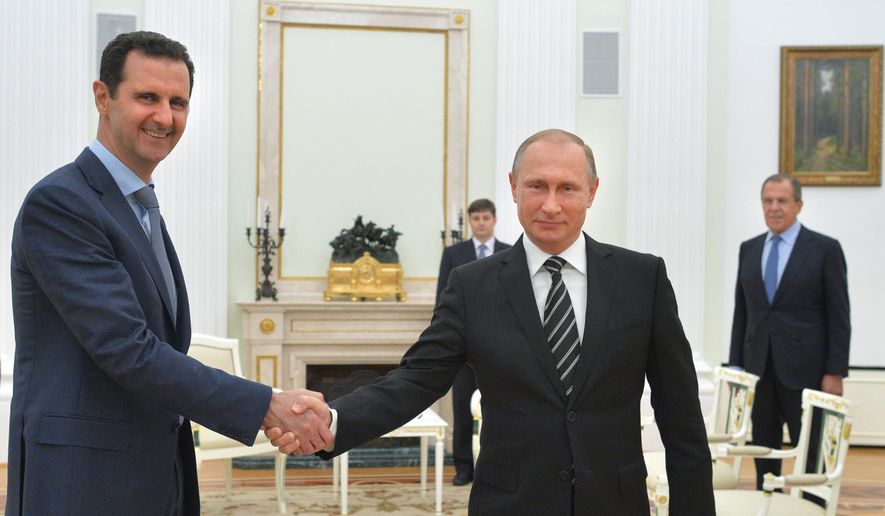A watchdog group accused Syria and Russia of violating international law Tuesday after obtaining evidence implicating their use of incendiary weapons in parts of Syria.
The joint military campaign being waged by Damascus and Moscow against the Syrian uprising has deployed incendiary weapons at least 18 times in the past nine weeks, Human Rights Watch said in its report.
Citing photographic proof and eyewitness accounts, the New York City-based NGO said the coalition conducted incendiary attacks in opposition-held areas in Aleppo and Idlib governorates between June 5 and August 10. At least 12 civilians were reported wounded as a result, the group said. Banned under protocol III of the Convention on Conventional Weapons, incendiaries use flammable chemicals to ignite blisteringly hot fires that are also difficult to extinguish.
Russia, a party to that treaty, has denied the claims, Associated Press reported Wednesday. Syria is not a party to the treaty.
According to Human Rights Watch, the use of incendiary weapon attacks in war-torn Syria has “increased significantly” since Russia began assisting President Bashar Assad last September. The U.S. is separately leading a multinational military campaign in the region against the Islamic State terror group.
The use of incendiary weapons in Syria has been discussed at least 40 times previously by various activists, NGOs and media organizations, but only recently has the group acquired evidence of such attacks, the report said.
“The visual evidence that incendiary weapons were used includes the distinctive mid-air displays created by the bright burning trails of air-dropped incendiary weapons containing ZAB-series incendiary submunitions. Other indicators include the small but intense fires created by each submunition over the time it takes to burn out as well as markings on the bomb casings and submunitions.”
“There is compelling evidence that Russian government aircraft are being used to deliver incendiary weapons or at least are participating with Syrian government aircraft in attacks using incendiary weapons,” the report concluded.
Steve Goose, arms director at Human Rights Watch, said countries attending a meeting at the Convention on Conventional Weapons later this month in Geneva should condemn the violation of international law.
“The Syrian government and Russia should immediately stop attacking civilian areas with incendiary weapons,” he said. “These weapons inflict horrible injuries and excruciating pain, so all countries should condemn their use in civilian areas.”
Col. Gen. Leonid Ivashov, a former member of the Russian Joint Chiefs of Staff and currently the president of Russia’s Academy of Geopolitical Problems, a national security think tank, dismissed the watchdog’s findings as ammo in an “information war” being waged against Moscow and Damascus.
“There are no air ammunition with incendiary substances such as napalm in Russia. Of the incendiary weapons in service in the Russian army, there are only flamethrowers, but, firstly, they are applied locally, and strictly aimed, and secondly, there is no such equipment in Syria,” he told RIA Novostia, the state-controlled Sputnik newswire reported.
The release of the report was preceded a day earlier by news suggesting the U.S. and Russia are close to working together toward taking out the Islamic State in Aleppo, previously Syria’s largest city. Speaking on Russia television Monday, Russian Defense Minister Sergei Shoigu said discussions with Washington were advancing “that would allow us to find common ground and start fighting together for bringing peace to that territory, that long-suffering land so that people could return to their homes.”
The United Nation’s special envoy in Syria said roughly 400,000 people have been killed in the civil war there between its start in 2011 and April 2016.
• Andrew Blake can be reached at ablake@washingtontimes.com.




Please read our comment policy before commenting.